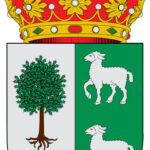21 June 1703: A whirlwind at Hatfield, Doncaster
Abraham de la Pryme. 1870. The Diary of Abraham de la Pryme, the Yorkshire Antiquary. Ed. Charles Jackson. Durham: Surtees Society. Get it:
.Unedited excerpt
If an excerpt is used in the book, it will be shorter, edited and, where applicable, translated.
[To Hans Sloane]
Thorn, June 26, 1703
‘Tis some time ago that I sent you an account of a spout that myself and many others saw in Hatfield parish in 1685, with some few conjectures upon the cause of it. Since that time I have been so happy as to see another in the same place, which very much confirms me in my notion of the nature and origin of them. The weather here in this part of the country hath been exceeding wet and cold, insomuch that it seemed rather to have been spring than midsummer. Yet, for all that, Monday, the 21st ditto, was pretty warm, on the afternoon of which day, about two of the clock, no wind stirring below, though it seemed somewhat great in the air, the clouds begun to be mightily agitated and driven together, whereupon they became very black, and were most visibly hurried round, as in a circle, whence proceeded a most audible whirling noise like that commonly heard in a mill. After a while, a long tube or pipe came down from the centre of the congregated clouds, in which was most plainly beheld a swift, spiral motion, like that of a screw, or the Cochlea Archimedis [Archimedes’ screw] when it is in motion, by which spiral nature and swift turning water ascends up into the one as well as into the other. It travelled slowly from west to north east, broke down a great oak tree or two, frighted the weeders out of the field, and made others lie down flat upon their bellies to save being whirled about and killed by it, as they saw many jackdaws to be, that were suddenly catched up, carried out of sight, and then cast a great way off amongst the corn. At last it passed over the town of Hatfield, to the great terror of the inhabitants, filling the whole air with the thatch that it plucked off from some of the houses; then, touching upon a corner of the church, it tore up several sheets of lead, and rolled them strangely together. Soon after which it dissolved and vanished, without doing any further mischief.
There was nothing more extraordinary in this than in the other that I gave you a former account of, and, by all the observation that I could make of both of them, I found that, had they been at sea, and joined to the surface thereof, they would have carried a vast quantity water into the clouds, and the tubes would then have become more dense, and opaque, and strong, than they were, and have continued much longer.
It is commonly says that at sea the water collects and bubbles up a foot or two high under those spouts before that they be joined; but the mistake lies in the pellucidity and fineness of those pipes, which do most certainly touch the surface of the sea before that any considerable motion be made in it, and that then when the pipe begins to fill with water it then becomes opaque and visible.
As for the reason of their small continuance and dissolving of themselves, after that they have drunk up a great quantity of water, I take it to be by and through the great quantity of water, that they have carried up, which must needs thicken the clouds and impede their motion, and by that means dissolve the pipes.
Comment
Comment
Something to say? Get in touch
Similar
Comment
Comment
No-one knows for sure where Sirowsby was – Thoresby is possible but perhaps improbable.
Via The History of Signboards, although I haven’t found an image of any such sign:
The Bell and Horse is an old and still frequent sign; it occurs on trades tokens; as John Harcourt at the Bell and Black Horse in Finsbury, 1668, and on various others; whilst at the present day it may be seen at many a roadside alehouse. Bells were a favourite addition to the trappings of horses in the middle ages. Chaucer’s abbot is described:—
“When he rode men his bridle hear,
Gingling in a whistling wind as clere,
And eke as loud as doth a chapel bell.”In a MS. in the Cottonian Library[238] relating the journey of Margaret of England to Scotland, there to be married to King James, we find constant mention of these bells. The horse of Sir William Ikarguil, companion of Sir William Conyars, sheriff of Yorkshire, is described as “his Hors Harnays full of campanes [bells] of silver and gylt.” Whilst the master of the horse of the Duke of Northumberland was “monted apon a gentyll horse, and campanes[175] of silver and gylt.” And a company of knights is introduced, “some of their hors harnes was full of campanes, sum of gold and sylver, and others of gold.” This led to the custom of giving a golden bell as the reward of a race. In Chester, such a bell was run for yearly on St George’s day; it was “dedicated to the kinge, being double gilt with the Kynges Armes upon it,” and was carried in the procession by a man on horseback “upon a septer in pompe, and before him a noise of trumpets in pompe.”[239] This custom of racing for a bell led to the adoption of the still common phrase, bearing off the BELL.
Something to say? Get in touch
Search
Donate
Music & books
Place-People-Play: Childcare (and the Kazookestra) on the Headingley/Weetwood borders next to Meanwood Park.
Music from and about Yorkshire by Leeds's Singing Organ-Grinder.



 Bluesky
Bluesky Extwitter
Extwitter